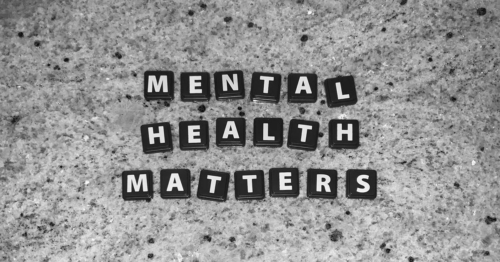
Table of Contents
When Overanalyzing Becomes a Mental Health Concern

Written By: Alex Bachert, MPH

Clinically Reviewed By: Clary Figueroa
November 19, 2024
5 min.
Learn how to stop overanalyzing so that you can focus on your relationships, career, and overall quality of life.
Learn more about our Clinical Review Process
Table of Contents
Our minds are powerful tools. They enable us to learn new things, connect with the world around us, and experience emotions like joy, happiness, and surprises. They also help us process information and make decisions. But sometimes, this may mean we spend a little too much time dwelling on specific information and decisions.
If you find that you tend to worry about things too often or in too much detail, you may have a habit of overanalyzing things. Here, we review signs of overanalyzing, tips for developing healthier thought patterns, and when overanalyzing may be a sign of an underlying mental health condition.

Support for when overanalyzing is getting in the way of your mental health
Virtual treatment from the comfort of your home.
What is overanalyzing?
Overanalyzing is when a person spends an excessive amount of time and energy thinking about a specific topic, thought, or situation. You may find it hard to think about anything else, even when the problem or concern is something that is outside of your control. Rumination is often an attempt to better understand or cope with a situation, but it usually ends up making a person feel worse.
Obsessive thoughts can impact everything from your relationships to your performance at work. For example, you might obsess over the wording of a text message from someone you’re dating or fixate on a small mistake you made at work. Eventually, this can affect your ability to make decisions.
Some other signs that you may have a habit of overanalyzing include:
- You struggle to distinguish high-priority versus low-priority tasks
- You look for others people’s approval or confirmation before making a decision
- You often ask yourself “what if” and imagine all the potential negative outcomes
- You procrastinate making decisions because you want to think about it more
- You are prone to self-criticism or perfectionism
Is overanalyzing a sign of mental health issues?
Most people are guilty of occasionally spending too much time thinking about something specific. But if you’re prone to excessive worry, it can eventually lead to stress, fatigue, and increased pressure. In some cases, overanalyzing may be a sign or symptom of an underlying mental health concern.
“If overanalyzing leads to misunderstanding or conflicts in relationships, it can indicate deep issues such as insecurity or attachment problems,” explains Anne Oeswein, LPC-S, a Charlie Health Clinical Supervisor. Overanalyzing can be associated with the following mental health conditions:
1. Obsessive-compulsive disorder
“If someone finds themselves repeatedly going over the same thoughts or worries, leading to significant distress or impairment in daily functioning, it may suggest obsessive-compulsive tendencies,” says Oeswein.
2. Anxiety
Overanalyzing can also be linked to an anxiety disorder if it’s preventing you from making decisions or causing a fear of making mistakes or being judged.
3. Social anxiety
“Constantly replaying social interactions in one’s mind and worrying excessively about what others think can be a sign of social anxiety,” explains Oeswein. “This might lead to avoidance of social situations altogether.”
4. Depression
If you have persistent negative thoughts or harmful beliefs about yourself, you may have a higher chance of developing depression or depressive symptoms like low self-esteem.
“Overanalyzing can also manifest physically, leading to stress-related symptoms like headaches, stomach issues, or fatigue,” adds Oeswein. Also, this list is not exhaustive, as overanalyzing can also be linked to other mental health conditions, including trauma-related conditions and personality disorders, experts say.
Expert tips on how to stop overanalyzing
Overanalyzing can be exhausting, stressful, and counterproductive. Luckily, recognizing this habit is one of the first steps in learning how to build healthier habits. Here are six additional tips to help you stop overanalyzing thoughts and situations in your life.
1. Challenge irrational thoughts
When we overanalyze something, it can be difficult to separate negative or irrational thoughts from reality. Next time you find yourself dwelling on a specific thought, ask yourself if there’s evidence to support these thoughts or if you might be exaggerating the situation.
2. Change your perspective
Another effective strategy for reducing obsessive thoughts is to redirect your energy toward constructive actions. “Shift your focus from analyzing the problem to brainstorming potential solutions,” Oeswein recommends.

CBT Journaling Can Help You Deal With Negative Thoughts
Charlie Health Editorial Team
3. Create guidelines
Find ways to create a more balanced way of thinking and making decisions. For example, “allocate a specific amount of time for thinking about a problem or decision,” suggests Oeswein. She also suggests that people avoid seeking excessive information or advice about a situation. “Make decisions based on the information you already have,” says Oeswein.
4. Create healthy distractions
“Participate in activities that can help distract you and break the cycle of overthinking,” says Oeswein. She suggests journaling, exercise, and spending time with friends.
5. Practice mindfulness
Another way to take your mind off negative thoughts is to practice mindfulness. Mindfulness techniques, such as meditation and deep breathing exercises, can help people ground themselves in the present moment and reduce excessive rumination.
6. Show yourself compassion
When we overanalyze something, it’s often because we feel like we’ve made a wrong decision. One way to help avoid this feeling is to practice self-compassion. By being kinder to ourselves, we can learn to improve our self-esteem, resilience, and self-confidence.
Can therapy help with overanalyzing?
The goal of talk therapy, or psychotherapy, is to provide people with a safe space for personal growth and exploration. Therapy, such as cognitive behavioral therapy (CBT), can help people understand how their thoughts, feelings, and behaviors may be contributing to ongoing mental health struggles. By working with a therapist, people can learn how to identify and challenge negative thought patterns, such as overanalyzing. It can also help you improve your communication skills and learn healthier coping methods for distressing emotions and situations.

How Charlie Health can support you
If your thoughts are getting in the way of your overall happiness and well-being, Charlie Health can help. Charlie Health’s virtual Intensive Outpatient Program (IOP) provides mental health treatment for people dealing with serious mental health conditions, including anxiety, depression, and more. Our expert clinicians incorporate evidence-based therapies into individual counseling, family therapy, and group sessions to make managing your mental health possible. Fill out the form below or give us a call to start healing today.




